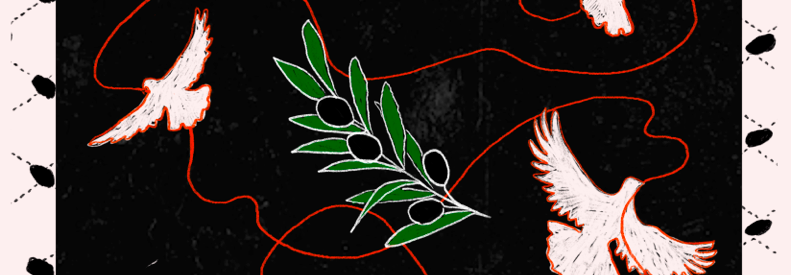BASICS
My baseline as a believer that informs my values and positions in the world, followed by my emotional support Quranic bookmarks and ongoing hadith collection.
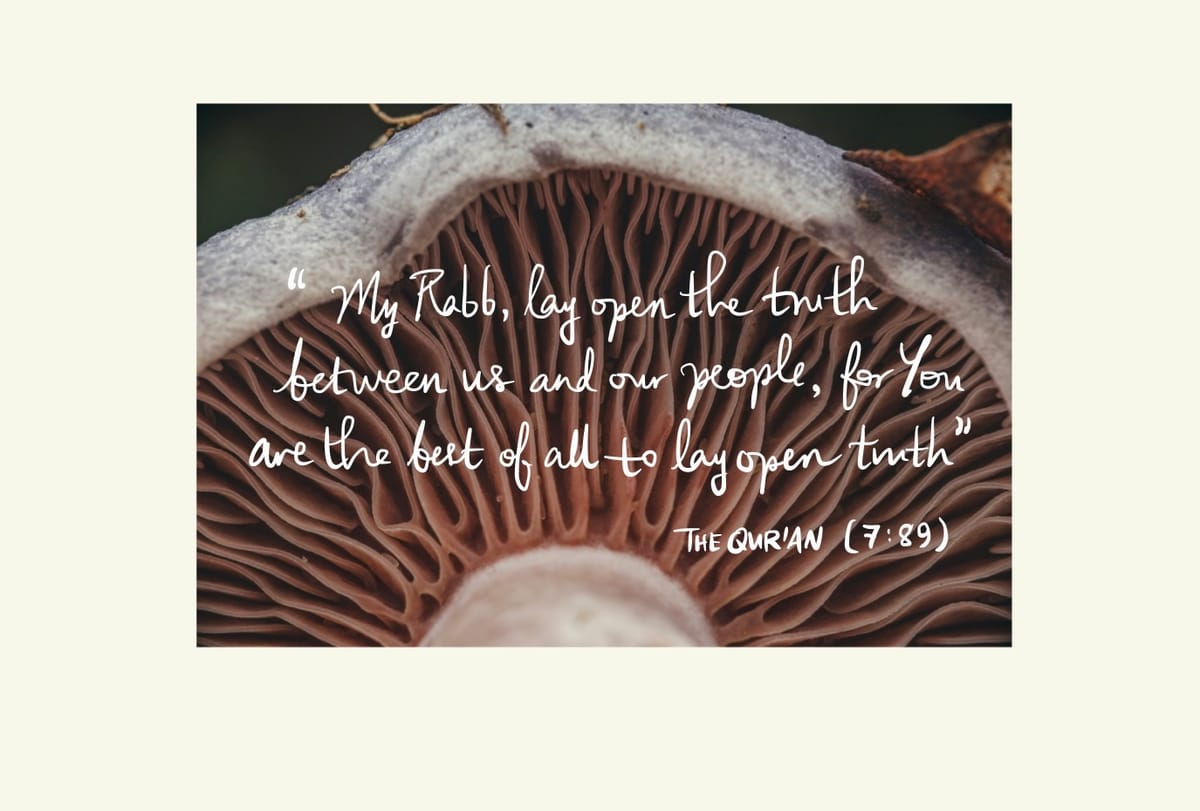
🛖
I update this page very often. It likely has changed since your last visit.

MY BELIEVER BASELINE
From what I know to be true, to believe is to:
- Explore signs of Truth that are inscribed in my existence, that of other living beings, and out in the world, not just from within sacred texts.
- Seek knowledge and change our minds+actions in the face of clear evidence.
- Never worship, prioritise, or devote myself to any modern construct or human power above the Source.
- Abolish relational hierarchies of domination and exclusion.
- Resist cruelty and oppression in the name of an All-Compassionate Creator.
These are the beliefs that inform my values and how I intend to move in the world.
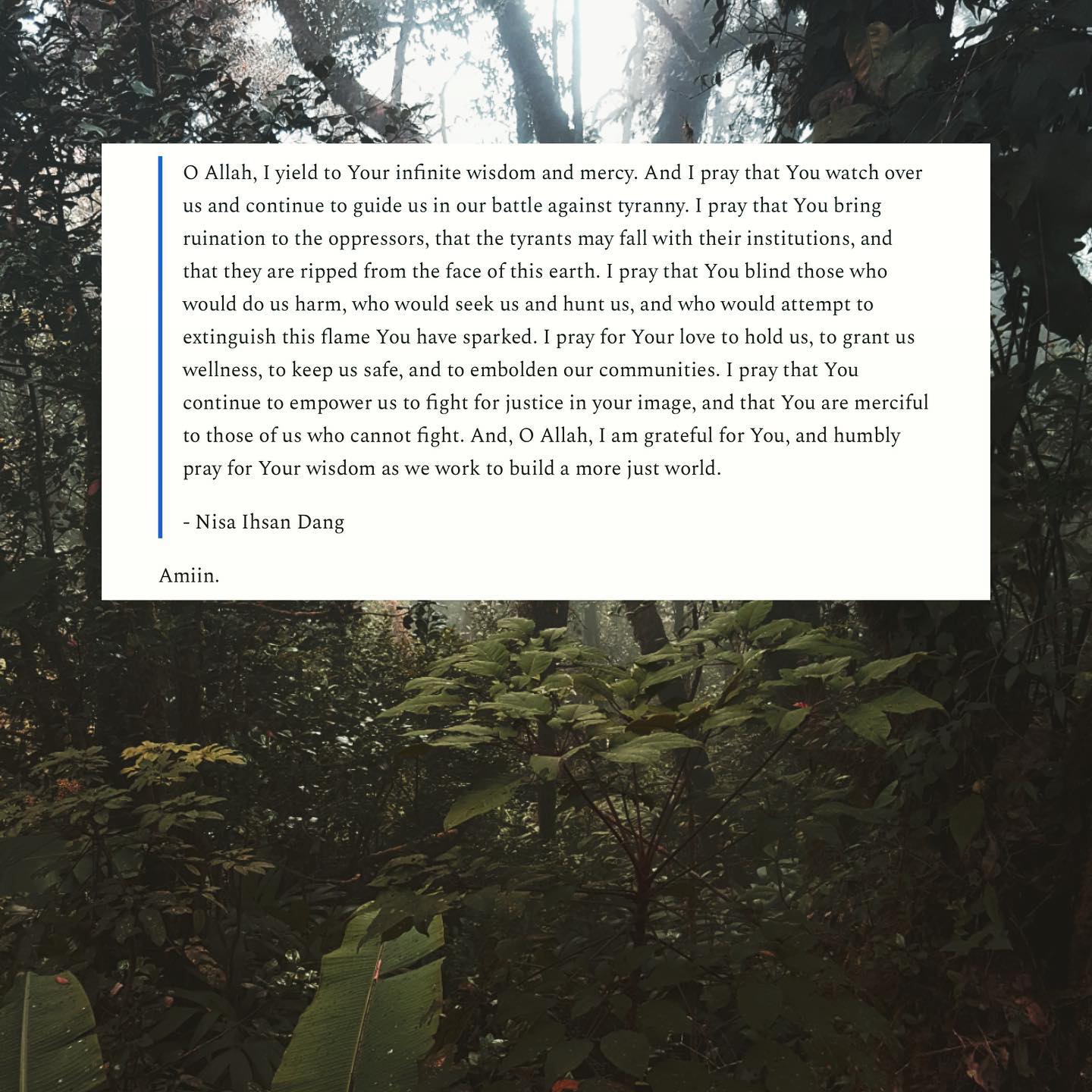
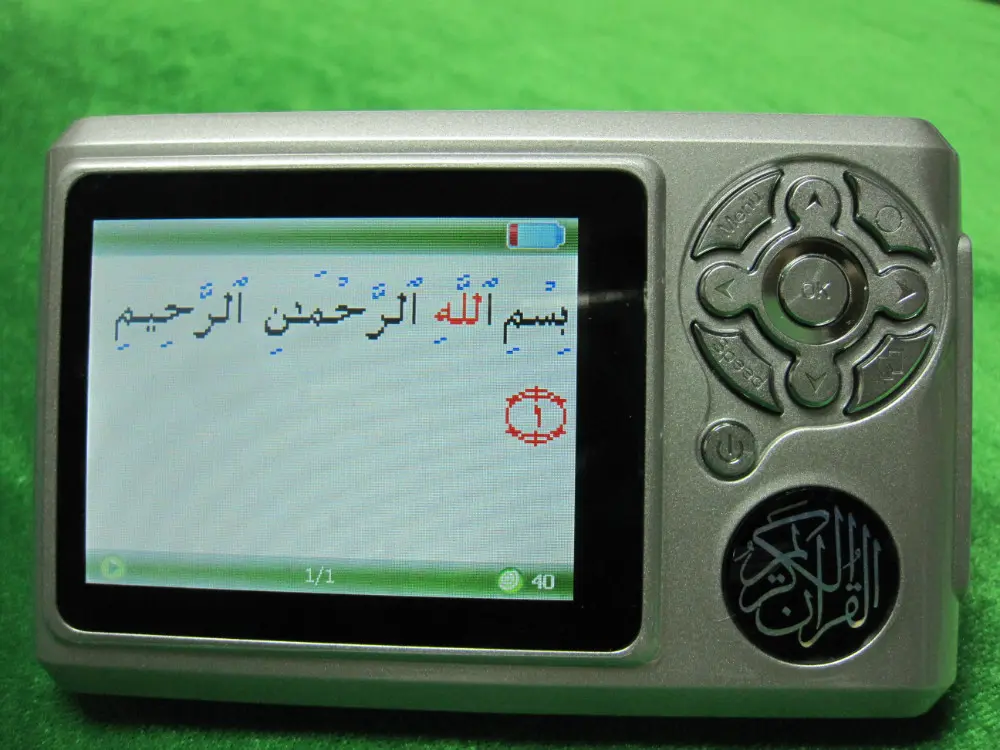
Signs
Emotional support Quranic bookmarks
🧿
These are not direct translations, only takeaways from befriending the Qur'an. Verses are cited as possible ways in for the curious.
IN
- the inherent value in the proper use of reason (akal, 21:67, 30:28, 36:62, 45:5, over 50+ more)
- taking responsibility for one's actions. This precedes freedom of choice and expression (10:41)
- paying attention to the person in front of you regardless of their status or position (80:1-11)
- listening closely to everything that is said, then following the best/kindest interpretation— that is the one with insight (39:17-18)
- checking the news you receive so that you don't wrong others by sharing misinformation and disinformation (49:6)
- purifying your belongings from concealed oppression by giving away your wealth to those with less (9:103)
- to practice redistributing our resources to resurrect our hearts (2:261)
- removing your attention from frivolous talk and those who act ignorantly (28:55)
- upholding privacy and consent (24:27-28)
- relationships that build spiritual peace: the certainty that they are each other's partners (2:187), upholding commitment as a promise (4:21), mutually upholding each other's dignity (4:19), solving problems through discussion (2:228, 3:159)
- speaking up and making bad words public when you have been wronged (4:148)
- to condemn the entitled and the oppressive (83:1-3) because no one should submit to the tyranny of an oppressor (42:39)
- to change our collective condition by changing our collective selves (13:11)
- saving a life from injustice (2:179, 5:8). To save even one life is equivalent to saving all humankind (5:32)
- learning about what has happened before our time (3:137)
- traveling Earth's regions to gain insights from the past (3:137-138, 22:46, 29:20, 67:15), and to learn about how the powerful who reject reality are inevitably overwhelmed by what they used to ridicule (6:11, 27:69, 30:42, 35:44, 40:21, 40:82-84, 47:10)
- gaining knowledge against ignorance and stand firm on justice (3:18, 9:122, 29:69)
- accepting the signs of Truth in ourselves (41:53, 51:20-21)
- freeing a human being who is enslaved, feeding an orphan in famine, or a poor person in distress (90:12-17)
- dressing well when at worship (7:31)
- delaying debts owed to you until things become easier for them, or even better, pardon the debt altogether (2:280)
- delaying any disagreements about religious beliefs until the Last Day of Accountability (7:87, 67:29)
- knowing that all that is false is perishable and expires by nature (17:81)
- accepting ease after hardship (94:5-6)
- making time to turn inward as well as time to expand (2:245)
- practicing the ability to be grateful (2:152, 14:7, 31:12)
- connecting love to both generousity and justice (2:35, 16:90)
OUT
- choosing to look away, to not speak up, and to not use reason. These are worst of all beings in the sight of the Beloved (8:22)
- hoarding bounty and blessings from the people we are in community with (4:36-38, 92:8-10, 3:180)
- using your influence to be complicit in an evil cause (4:85)
- doing generations of damage on the earth and its labour (2:205)
- suspicion and surveillance. The Beloved warns us that surveillance culture feasts on our lack of trust in each other (49:12)
- antisocial solidarity, collaborating in hostility and transgression (5:2)
- spreading rumours and information disorders (24:15)
- wasting nourishment (7:31, 17:27)
- the distracting delusion of competing to accumulate worldly resources (102:1-2. 3:14, 9:24, 9:34)
- finding faults in others while counting your wealth over and over (104:1-5)
- to believe that the great illusions we are capable of can prevail over truth (7:118)
- overvaluing ourselves as self-sufficient (96:6-7)
- taking your own desires as god (45:23)
- wishing for things you know nothing about (11:47)
- believing that we are the sole architects of our plan's success (8:30)
- rejecting the diversity of creation (16:13, 35:27-28) and that everyone does according to their disposition and nature (17:84, 92:4). There are signs in loving relationships and the diversity of our tongues and tastes (30:21-22).
- pushing the orphan away, not influencing others to feed those in need, praying but being oblivious of moral duties, not supplying even small kindnesses (108:1-3)
- to narrow paths that were meant to be wide (5:48, 71:19-20, 92:4)
- to compromise one's body by fasting through difficulty, which is a rejection of Divine will and kindness (2:184-185)
- mocking and undermining people's faith (49:11)
- holding other people accountable for your own actions (2:138, 35:18)
- insulting what others worship (6:108). Doing so risks driving a deeper disconnect between people and the Divine.
- discouraging anyone from praying (96:9-14)
- forcing faith upon others (2:256, 2:208, 10:41). For example, forcing people to be Muslim disrespects the Beloved's decision not to make everyone Muslim (5:48, 10:99-100). Any belief to the point of conviction can only be attained through reason, not passively by birth.
- giving people without firm beliefs the power to dishearten you (30:60)
- walking on the Earth arrogantly like there are no limits to our actions over nature (17:37)
- thinking anything other than our taqwa distinguishes us from each other in the eyes of the Beloved (49:13)
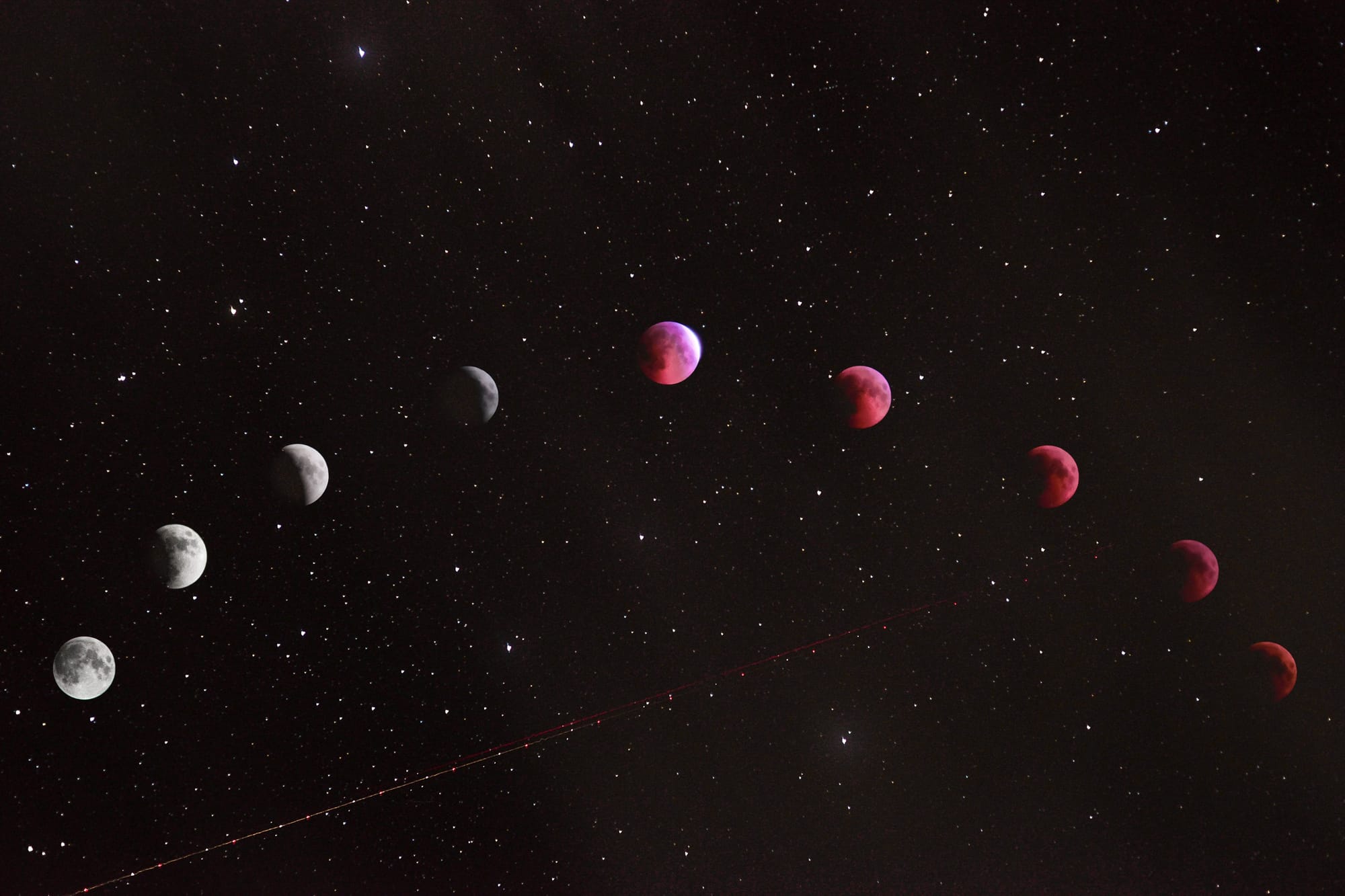
Gathering 40 lessons from 40 hadith
My ongoing curation of documented stories re: the mortal messenger Muhammadﷺ
🧿
Although no narration is as elevated as Quranic revelation, hadiths are regularly weaponised to cause religious trauma in generations of Muslims. So I am now learning to befriend the messenger too. This collection is a personal reclamation project curated based on the Quranic principle that the prophetic mission was meant as Rahma to all beings (21:107). For me this means: to find spiritual healing within so many documented narrations of varying quality, I must value learning only from the messengerﷺ's most Rahma-fied most Rahma-tised actions. I hope to eventually complete my take on a classic Muslim tradition— compiling my own fancam of 40 hadith here. As always, A!!ahﷻ knows best what the man truly said/meant.
40 lessons from 40 hadith (in progress)
What I've learned:
- Believing is meant to be easy, not impractical.
- Blessed are the strangers and the weirdos.
- The value of one's actions are in the intention.
- When given an option, favour the easier choice— but no convenience is worth an injustice.
- We can get everything right and still fail if we are selfish and envious of others.
- It is an act of care to prevent oppressors from harming others.
- To speak a word of justice to an oppressor is the best form of struggle.
- None can prevent the call of the oppressed to the Most Powerful.
- Children are an oppressed group of people.
- We cannot normalise surveillance, competition, inflation, grudges, and exclusion.
- Greed corrupts soul and society by multiplying domination.
- To generalise one's pessimism as universal is an act disconnected from reality.
- Fear of futility should not stop us from planting hope.
- The believers of Reality who struggle for liberation are like one body in their mutual compassion.
- Effort and faith go hand in hand, so do not neglect what you are responsible for.
- The Beloved favours those who care for and defend humankind's orphans.
- Your abundance is hollow if you let your neighbours go hungry.
- Encourage men to confess their love for each other.
- Show compassion for those who die by suicide.
- Exploited animals will complain about you.
- Every living being will testify to the way you interacted with them.
- Killing animals for food is not something we should do uncritically.
- [pending until 40]
40 Hadith Fancam
My ongoing curation of documented stories re: the mortal messenger Muhammadﷺ


🪬
Liy is a tropical cryptid in Southeast Asia foraging for narrative resources from the periphery to prepare for precarious futures. This is an ad-free space outside of the algo. If you're new here (hello!) or need a refresher, start here for house rules. Here is what I am up to now. I spend time thinking out of my zettelkasten notes system and sharing curated playlists from my time travels. Consider subscribing (it's free!) to read more and stay in touch: I only send out letters a few times a year. If you valued something here, say so (if we have access to each other) or I would really appreciate if you buy me a coffee— that sends me a signal to keep going.
